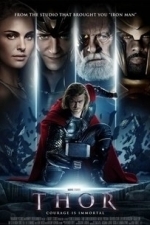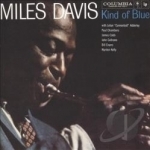Darren (1599 KP) rated Thor (2011) in Movies
Jul 25, 2019
When the Frost Giants try to enter Asgard, Thor decides to lead a team to retaliate, which sees Odin banish him to Earth. Thor must learn his place in the universe, with Jane helping him, while Loki takes his place as King of Asgard even if his past sees him wanting the events of the film to happen.
Thoughts on Thor
Characters – Thor is the son of Odin, he is soon to become King, but his over confrontational nature sees him disobeying his father’s orders, he is a fearless warrior who is banished to Earth, without his powers. This is a lesson for him to learn about fighting the right wars, not starting them, until he learns this, his powers won’t return to him. Janes Foster is an astrophysicist that has been searching for answers in the cosmos, her research has seen her finding unexplained answers in the universe, she could finally get answers with Thor’s appearance, she is willing risk her career for answers. Loki is the brother of Thor, he has been planning on taking over Asgard instead of his brother, he knows his past and has been waiting for his moment to become King. Odin is the king of Asgard, he has kept the peace for centuries and is running short on patience for his son’s action, he wants to teach Thor a lesson, while needing to tell Loki about his own past.
Performances – Chris Hemsworth is fantastic in the leading role, he has the look and shows the comic timing which has become the staple of his character. Natalie Portman is strong enough even if the character is disappointing, Tim Hiddleston shows us his calm persona behind his character, with Anthony Hopkins doing everything you would imagine he would bring to a father figure.
Story – The story here follows Thor as he must learn his truth strength when it comes to one day become King of Asgard, this will see him losing his powers and learning to control his desires while his brother is positioning himself for power. Thor is yet another character we knew very little about going in (unless you read the comics), we get to see his past, how the world he is from is created, the dynamics behind the characters involved, even before we get to Earth. On Earth we learn more about the SHIELD and how they are still investigating the bigger picture of unexplained weapons. This does show us just how important waiting for power is more important than being given power, we get to see how another hero is introduced to us for the bigger picture.
Action/Fantasy – The action is at the large scale here with the battles being hordes of enemies for Thor at times, we do get the giant battle against the enemy physically bigger and stronger that Thor must learn to defeat as well as the traditional final fight which shows us the sacrifice a king must make. The fantasy world created shows us the world of Gods being real, being one away from our own, while still being connected in folk lore.
Settings – The vision of Asgard is beautiful, with towering buildings, a place where you would imagine Gods living. The second settings takes us to New Mexico which plans into the fish out of water scenario.
Special Effects – The effects are the best in the franchise to date, the pure scale of the enemies involved, the worlds created and fight sequences makes this look beautiful to watch even with the CGI heavy usage.
Scene of the Movie – Bifrost fight.
That Moment That Annoyed Me – Certain parts of Loki’s plan seem confusing.
Final Thoughts – This is one of the enjoyable comic book movies you will see, we get the big action sequences, we get some laughs and we see the star of Chris Hemsworth take full advantage of his opportunity.
Overall: Great Fun.

House Building Master Class
Productivity and Education
App
Take a House Building Master Class with this selection of 375 educational video lessons. Many...
Mick Hucknall recommended Kind of Blue by Miles Davis in Music (curated)
Purple Phoenix Games (2266 KP) rated Dogo Dash in Tabletop Games
Oct 15, 2020
Disclaimer: We were provided a PnP version of Dogo Dash for the purposes of this preview. The artwork and colors may see some changes between this preview and the final production, but is the most current version. -L
Dogo Dash is a trick-taking party game in which players are trying to earn points by collecting the most cards by the time the draw deck runs out. Setup is quick and easy – shuffle the deck and deal 4 cards to each player. Looking at their hands, players will then select one card to play this turn, and will place it face-down on the table. Once all players have chosen their card, everyone will reveal their cards at the same time. The player that played the strongest card is the winner for the turn, and collects all of the played cards. The strength of the cards is as follows: Cookie beats Bear and Dog, Bear beats Dog and Cat, Dog beats Cat, and Cat beats Cookie (and therefore all other cards this turn).
In the event of any ties, where multiple players have played the strongest card, play continues with a small change – the cards played in the round of the tie remain on the table. The tied players select another card from their hand and reveal it simultaneously. Whomever wins this tiebreaker collects all the cards. If the tiebreaker ends in another tie, then the tied players split the cards between themselves. If any player plays a Good Boy card, that round automatically is considered a tie, and a tiebreaker commences with all players. All players draw back up to 4 cards, and play continues in this fashion until the draw deck is empty. The player with the most cards at the end of the game is the winner!
As you can see, this game is pretty simple to learn and fast to play! The elements of War and Rock, Paper, Scissors are evident, but altered with more ‘character’ options and a more involved hierarchy of power. Unlike traditional Rock, Paper, Scissors, the animals/cards of Dogo Dash are more versatile in play. Instead of only beating one other type of card, each card will act differently based upon what other cards are played that turn. For example, Dog always beats Cat – unless someone also played Cookie. Because Cat beats Cookie, which beats Dog, so Cat wins this round! Instead of relying simply on numerical order to determine the hierarchy of power, the game feels more engaging and fun to play.
Another neat element is the inclusion of the Good Boy cards. When played, they automatically force a tie. All players then must participate in the tiebreaker. The Good Boy cards could be a strategic way to bag a ton of cards for yourself – forcing a tie and then winning the tiebreaker earns you essentially 2 rounds worth of cards! Or they could just be a silly way to interfere with opponents or just to keep a round from ending. There are also a couple of special card combos that can be played in a round, but I will leave those for you to discover on your own!
So all in all, how does Dogo Dash perform? I think it is a fast, fun, and light little game that can be played in many different situations. Whether you need a small filler game, are introducing newer gamers to the hobby, or want to find a game that is kid-friendly, Dogo Dash fits the bill. The gameplay feels familiar, but with a few twists, and that makes the overall game fun to play. Definitely check out Dogo Dash once it hits Kickstarter – you don’t want to miss out on this treat!

Rota Calendar - Work Shift Manager
Productivity and Lifestyle
App
Sort your shift out - 8 reasons to get control back of your social life with Rota Calendar. Does...

Baby Monitor Duo (VoIP)
Lifestyle and Health & Fitness
App
Now with live video streaming! All you need are TWO iOS-devices – iPhone / iPad / iPad Touch –...

Ola cabs - Book taxi in India
Travel
App
The Ola cabs app is the easiest and fastest way to book a cab or a taxi in your city. With more than...

Ultimate Teen Patti — UTP
Games
App
Teen Patti is the most thrilling card game and Ultimate Teen Patti is the number one Teen Patti app...

Wing Chun Kung Fu Self Defense
Sports and Health & Fitness
App
Learn Wing Chun anywhere and anytime with Sifu David's Wing Chun App! #1 WING CHUN TRAINING APP on...

Yum Cha Dim Sum (Food_Hong Kong)
Food & Drink and Lifestyle
App
Yum Cha Dim Sum Pocket Guide (English-Chinese version) [ 飲茶點心 (中英文版)...


